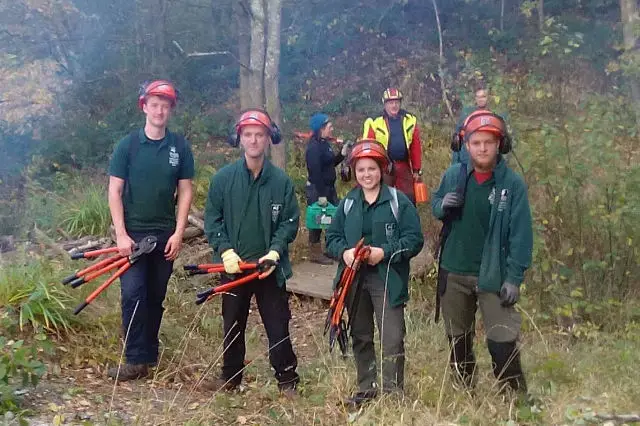Lianne shares this latest news from the Hampshire & Isle of Wight Wildlife Trust. Ed
Young people have the chance to learn vital conservation skills and help restore the East Wight’s woods, thanks to a new Wildlife Trust scheme to train up the next generation of woodland workers.
The new scheme helps young people aged 18-24 learn the knowledge and skills they need for an Environmental Conservation diploma, in partnership with Sparsholt College.
Will help restore neglected woods
The first four apprentices began in November and have since learned tree identification, tree survey, coppicing, tree felling, fencing and firewood production.
Their practical work will also help restore ten neglected woods in the East Wight, benefitting red squirrels, dormice, bats, woodland butterflies, and birds, among other species.
Further opportunities
Apprenticeships will be available over the next four years as part of Down to the Coast, a Heritage Lottery Fund supported project to improve and celebrate landscapes in the East Wight.
In total at least eight young woodland workers will gain the experience, skills and training they need to embark on a future career in conservation.
A rare skill needed more than ever
Jamie Marsh, Reserves Manager for Hampshire & Isle of Wight Wildlife Trust said:
“Looking after our woodlands is an increasingly rare skill – and one that’s never been needed more. Thanks to the support of the Heritage Lottery Fund, we’ve been able to offer vital training opportunities to young people interested in a career in conservation – while restoring some incredibly important wildlife-rich woodland in the East Wight.”
Verity Foster, one of the new apprentices said:
“The apprenticeship provides me with an amazing opportunity to work with conservation experts in a variety of stunning locations on the Island. I hope to learn more about the fantastic wildlife around us as well as gaining the practical skills needed to enhance their environment.”





